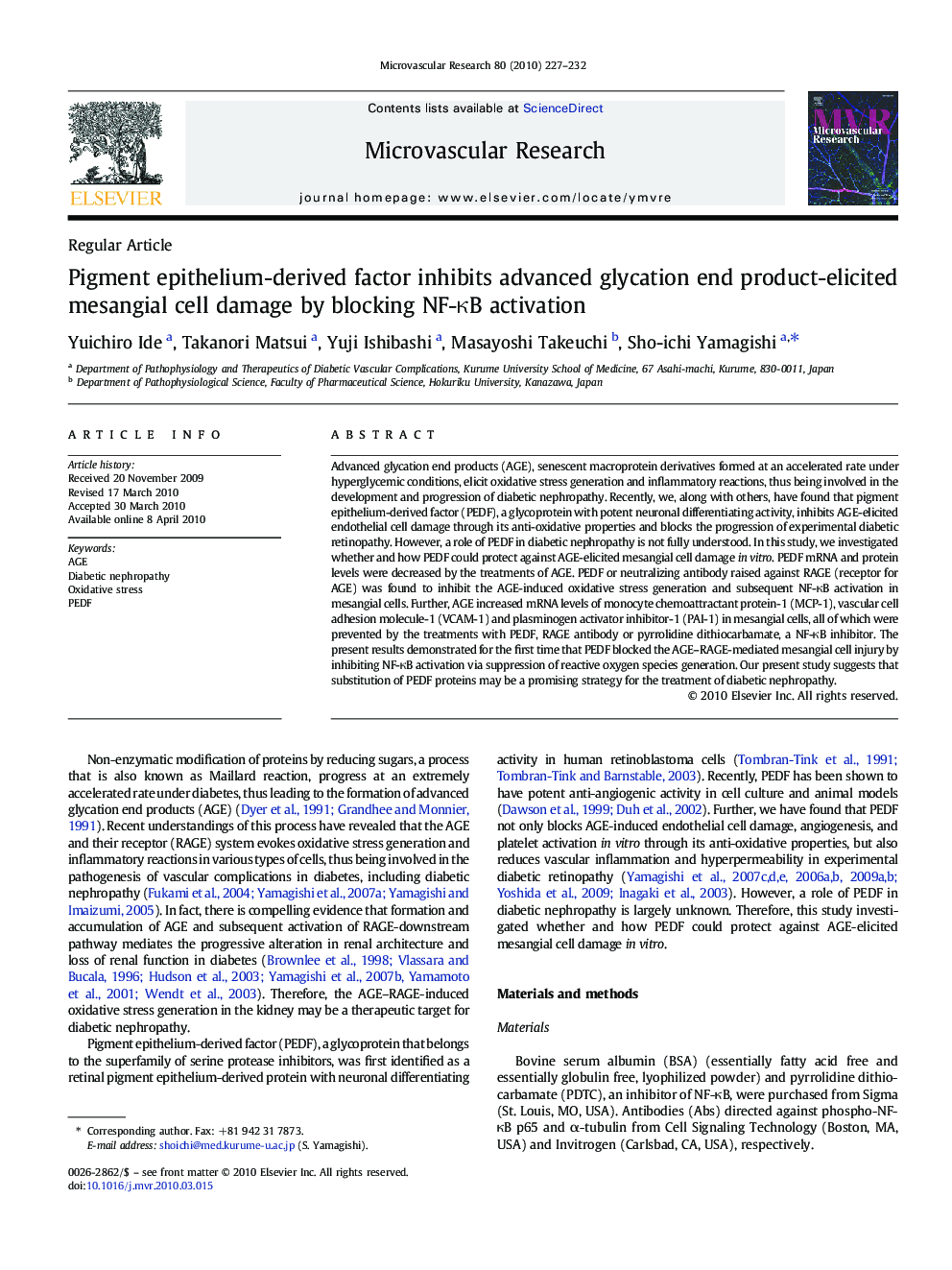| کد مقاله | کد نشریه | سال انتشار | مقاله انگلیسی | نسخه تمام متن |
|---|---|---|---|---|
| 1995070 | 1064951 | 2010 | 6 صفحه PDF | دانلود رایگان |

Advanced glycation end products (AGE), senescent macroprotein derivatives formed at an accelerated rate under hyperglycemic conditions, elicit oxidative stress generation and inflammatory reactions, thus being involved in the development and progression of diabetic nephropathy. Recently, we, along with others, have found that pigment epithelium-derived factor (PEDF), a glycoprotein with potent neuronal differentiating activity, inhibits AGE-elicited endothelial cell damage through its anti-oxidative properties and blocks the progression of experimental diabetic retinopathy. However, a role of PEDF in diabetic nephropathy is not fully understood. In this study, we investigated whether and how PEDF could protect against AGE-elicited mesangial cell damage in vitro. PEDF mRNA and protein levels were decreased by the treatments of AGE. PEDF or neutralizing antibody raised against RAGE (receptor for AGE) was found to inhibit the AGE-induced oxidative stress generation and subsequent NF-κB activation in mesangial cells. Further, AGE increased mRNA levels of monocyte chemoattractant protein-1 (MCP-1), vascular cell adhesion molecule-1 (VCAM-1) and plasminogen activator inhibitor-1 (PAI-1) in mesangial cells, all of which were prevented by the treatments with PEDF, RAGE antibody or pyrrolidine dithiocarbamate, a NF-κB inhibitor. The present results demonstrated for the first time that PEDF blocked the AGE–RAGE-mediated mesangial cell injury by inhibiting NF-κB activation via suppression of reactive oxygen species generation. Our present study suggests that substitution of PEDF proteins may be a promising strategy for the treatment of diabetic nephropathy.
Journal: Microvascular Research - Volume 80, Issue 2, September 2010, Pages 227–232